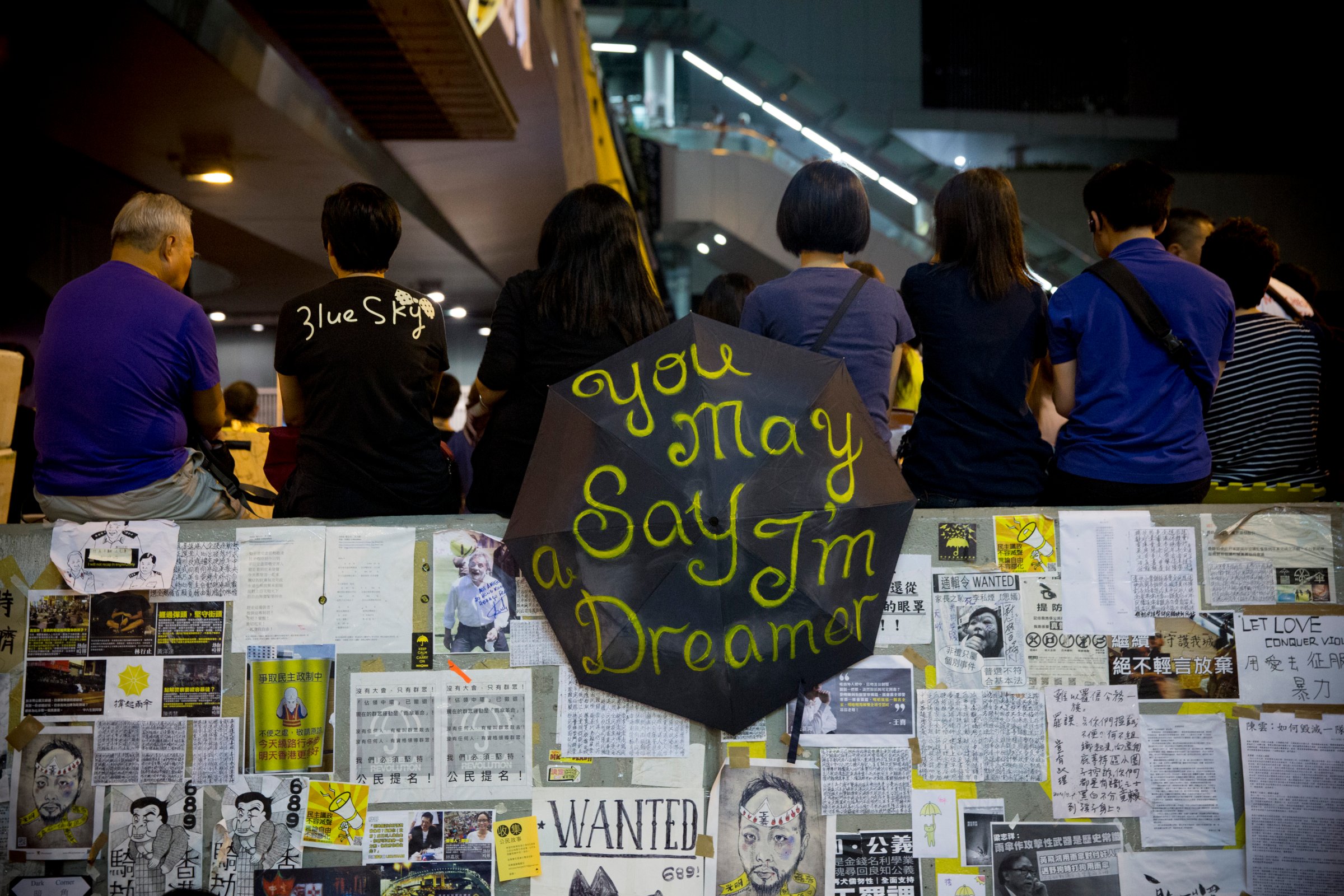
Nearly 140 years ago, my great-grandfather left a small town in India’s Gujarat state to seek opportunity overseas. He heard of a tiny new British colony off the southern coast of a giant old Chinese kingdom, ventured over, and built a better life. Subsequent generations of his clan followed. I was the first to actually be born and raised in Hong Kong — and I’m glad I was. Over the decades, the city has given me and my family a chance to be educated, get good jobs and gain a global outlook. When Britain returned Hong Kong to China in 1997, we stayed on, confident in the territory’s future. Not many residents, ethnic Chinese or not, can claim local roots as deep as mine. To me, Hong Kong — dynamic, orderly, worldly — is more than a place to live and work. It’s in my DNA.
That’s why, even as I keep a professional distance as a journalist, I am personally affected by what Hong Kong is going through. Pride, shock, sorrow — like the territory itself, I have experienced all these emotions, rising and falling with the news, as pro-democracy demonstrators face off, day and night, against a stern police force and an unyielding local government.
In the first week of the sit-ins, the territory witnessed: a peaceful expression of civil disobedience by Hong Kongers, many of them students; the tear-gassing of unarmed citizens in scenes reminiscent of Islamabad, Cairo and Ferguson; and the ferocity of concerted attacks by thugs on protesters on a day that my colleague Aidyn Fitzpatrick, also Hong Kong–born, called “one of the darkest in Hong Kong’s political history.” That night I wept for a city I no longer recognized.
The protests, standoffs and clashes have become more violent since — an aggressive new fringe of activist has entered the fray, and the police response is increasingly uncompromising. Scores of injuries have occurred, with both sides suffering. The many whose lives, and livelihoods, have been disrupted by the occupied areas and the ensuing gridlock grow angrier. The upshot is that Hong Kong is divided as never before: pro-democracy vs. pro-China; the street vs. the Establishment; young vs. old. Nowhere was the polarity more dramatically revealed than during a live broadcast of talks between students and officials that took place on Tuesday night. In the first TV debate of its kind on Chinese soil, there seemed to be zero chance of reconciliation.
Beijing’s Aug. 31 decree imposing restrictions on the 2017 election of Hong Kong’s leader, the chief executive (CE), was the spark that lit the protests. But democracy is just the vanguard of a clamor for wider change from the marginalized to the middle class. Since the 1997 handover, little has been done to diversify the economy away from real estate and finance, lower the ever higher cost of living or create new jobs.
Instead, the emphasis has been on pleasing Beijing, an agenda that Hong Kongers have rejected repeatedly — an anti-subversion law and the introduction of “national education” had to be scuttled after massive rallies in 2003 and 2012, respectively.
Public trust in an out-of-touch government — and in Beijing — has been severely eroded. Hong Kong, a global financial hub, may be outwardly rich — GDP per capita (PPP) is $53,000 — but, because wealth is so poorly distributed, nearly a fifth of the 7.2 million population lives below the local poverty line of $1,500 a month for a family of three. With current CE Leung Chun-ying seen as a Beijing lackey, a legislature controlled by Establishment figures and an economy dominated by tycoons, ordinary citizens have little choice but to turn to the streets to be heard.
China’s rulers and their Hong Kong proxies should listen, if only out of self-interest. Democracy is no panacea, but it makes those in power more accountable to the citizenry. To the argument that China would not allow more freedom in Hong Kong because it would create a precedent for the Chinese mainland and threaten the ruling Communist Party, the right response is that it’s about time Beijing understands the aspirations of some of its people. Civic consciousness in Hong Kong has been raised to the point that it cannot be bottled. If the territory — which is guaranteed significant autonomy until 2047 through a Sino-British agreement — is so dangerous, why do so many mainlanders wish to come here to study, work and live?
The alternative is that Hong Kong, the brightest star in China and normally a wonderfully easy place to run, will be further alienated and become harder to govern. Its tough tactics may enable Beijing to win today, but longer term, China would forfeit the support of an entire generation — a generation that stands not for subversion, as state media declare, but for hope, for Hong Kong and the entire nation.
Hope is what drew my great-grandfather to Hong Kong. He was then just in his early 20s, similar in age to so many of the protesters. If the Hong Kong dream is to be allowed to be all you can, he achieved it. I’d like to think that in the Hong Kong people pursuing that dream today, a part of my great-grandfather still lives.
More Must-Reads from TIME
- Donald Trump Is TIME's 2024 Person of the Year
- Why We Chose Trump as Person of the Year
- Is Intermittent Fasting Good or Bad for You?
- The 100 Must-Read Books of 2024
- The 20 Best Christmas TV Episodes
- Column: If Optimism Feels Ridiculous Now, Try Hope
- The Future of Climate Action Is Trade Policy
- Merle Bombardieri Is Helping People Make the Baby Decision
Contact us at letters@time.com